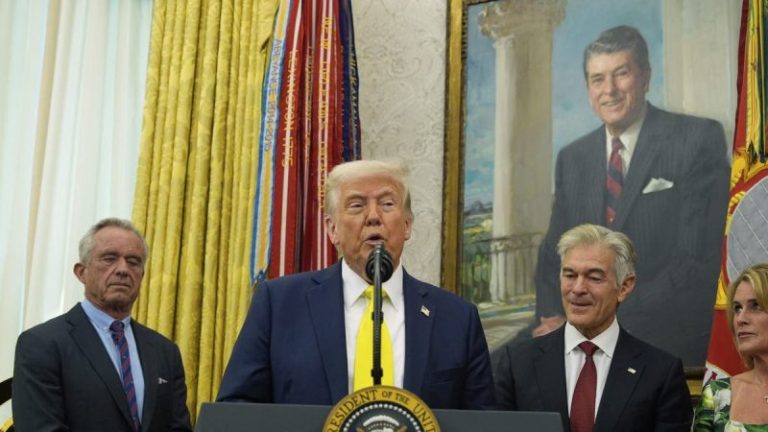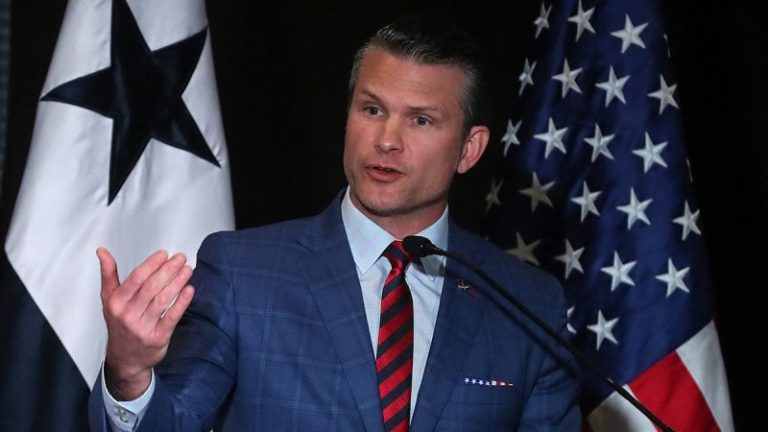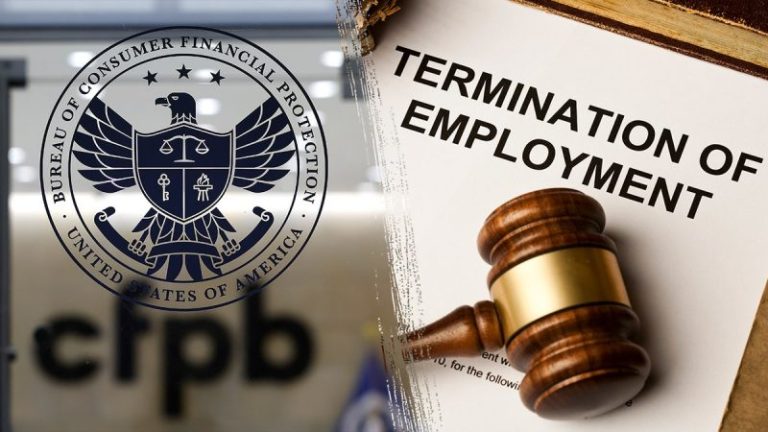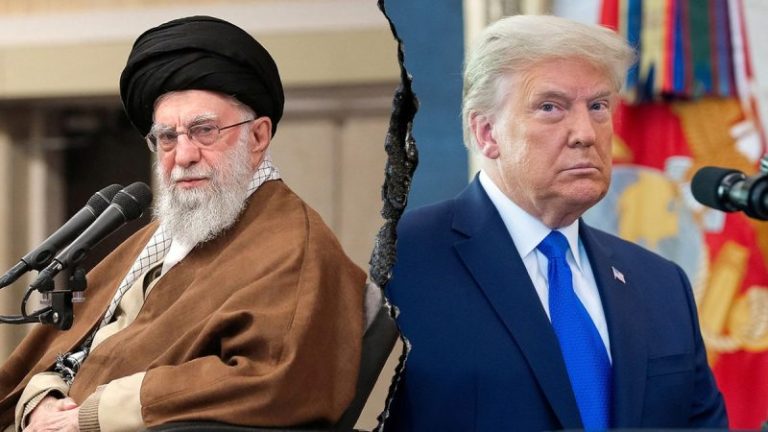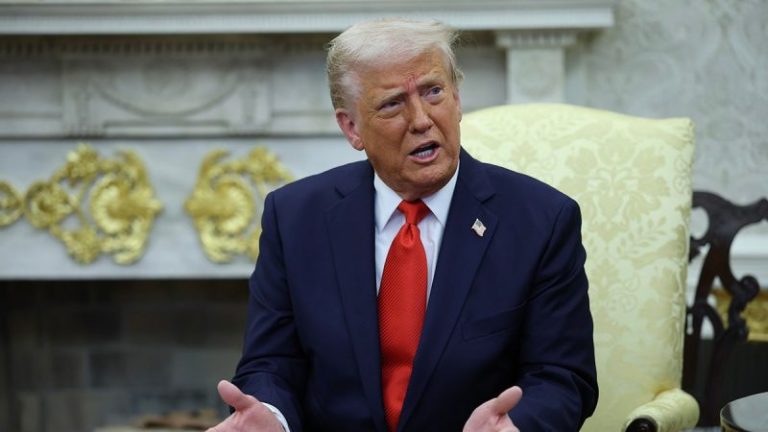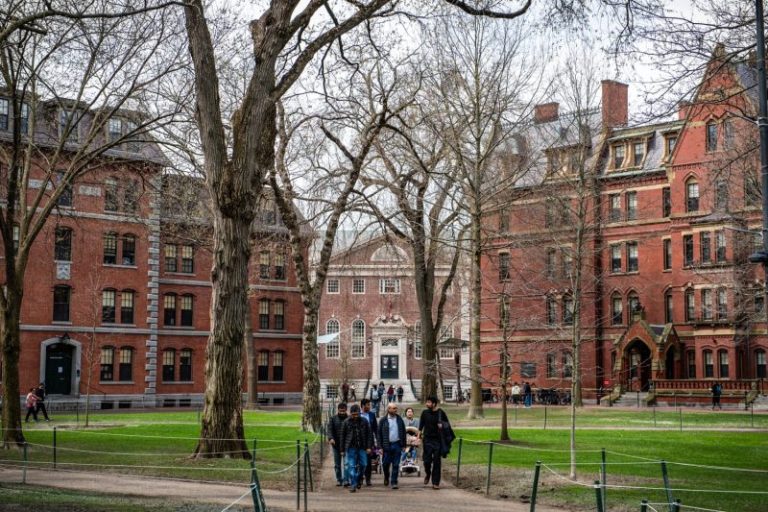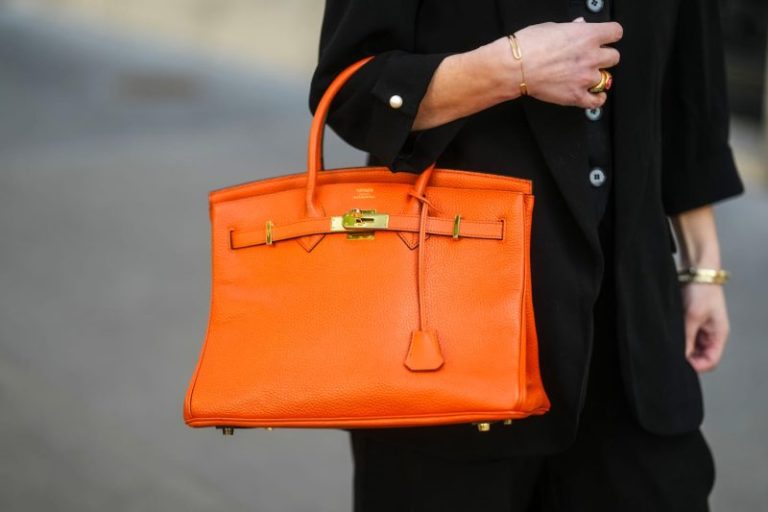Harvard’s brewing conflict with the Trump administration could come at a steep cost — even for the nation’s richest university.
On April 14, Harvard University President Alan Garber announced the institution would not comply with the administration’s demands, including to “audit” Harvard’s students and faculty for “viewpoint diversity.” The federal government, in response, froze $2.2 billion in multi-year grants and $60 million in multi-year contracts with the university.
According to CNN and multiple other news outlets, the Trump administration has now asked the Internal Revenue Service to revoke Harvard’s tax-exempt status. If the IRS follows through, it would have severe consequences for the university. The many benefits of nonprofit status include tax-free income on investments and tax deductions for donors, education historian Bruce Kimball told CNBC.
Bloomberg estimated the value of Harvard’s tax benefits in excess of $465 million in 2023.
Nonprofits can lose their tax exemptions if the IRS determines they are engaging in political campaign activity or earning too much income from unrelated activities. Few universities have lost their non-profit status. One of the few examples was Christian institution Bob Jones University, which lost its tax exemption in 1983 for racially discriminatory policies.
White House spokesperson Harrison Fields told the Washington Post that the IRS started investigating Harvard before President Donald Trump suggested on Truth Social that the university should be taxed as a “political entity.” The Treasury Department did not reply to a request for comment from CNBC.
A Harvard spokesperson told CNBC that the government has “no legal basis to rescind Harvard’s tax exempt status.”
“The government has long exempted universities from taxes in order to support their educational mission,” the spokesperson wrote in a statement. “Such an unprecedented action would endanger our ability to carry out our educational mission. It would result in diminished financial aid for students, abandonment of critical medical research programs, and lost opportunities for innovation. The unlawful use of this instrument more broadly would have grave consequences for the future of higher education in America.”
The federal government has challenged Harvard on yet another front, with the Department of Homeland Security threatening to stop international students from enrolling. The Student and Exchange Visitor Program is administered by Immigration and Customs Enforcement, which falls under the DHS.
International students make up more than a quarter of Harvard’s student body. However, Harvard is less financially dependent on international students than many other U.S. universities as it already offers need-based financial aid to international students in its undergraduate program. Many other universities require international students to pay full tuition.
The Harvard spokesperson declined to comment to CNBC on whether the university would sue the administration over the federal funds or any other grounds. Lawyers Robert Hur of King & Spalding and William Burck of Quinn Emanuel are representing Harvard, stating in a letter to the federal government that its demands violate the First Amendment.
Harvard, the nation’s richest university, has more resources than other academic institutions to fund a long legal battle and weather the storm. However, its massive endowment — which has raised questions during the recent developments — is not a piggy bank.
Harvard has an endowment of nearly $52 billion, averaging $2.1 million in endowed funds per student, according to a study by the National Association of College and University Business Officers, or NACUBO, and asset manager Commonfund.
That size makes it larger than than the GDP of many countries.
The endowment generated a 9.6% return last fiscal year, which ended June 30, according to the university’s latest annual report.
Founded in 1636, Harvard has had more time to accumulate assets as the nation’s oldest university. It also has robust donor base, receiving $368 million in gifts to the endowment in 2024. While the university noted that more than three-quarters of the gifts averaged $150 per donor, Harvard has a history of headline-making donations from ultra-rich alumni.
Kimball, emeritus professor of philosophy and history of education at the Ohio State University, attributes the outsized wealth of elite universities like Harvard to a willingness to invest in riskier assets.
University endowments were traditionally invested very conservatively, but in the early 1950s Harvard shifted its allocation to 60% equities and 40% bonds, taking on more risk and creating the opportunity for more upside.
“Universities that didn’t want to assume the risk fell behind,” Kimball told CNBC in March.
Other universities soon followed suit, with Yale University in the 1990s pioneering what would become the “Yale Model” of investing in alternative assets like hedge funds and natural resources. Though it proved lucrative, only universities with large endowments could afford to take on the risk and due diligence that was needed to succeed in alternative investments, according to Kimball.
According to Harvard’s annual report, the largest chunks of the endowment are allocated to private equity (39%) and hedge funds (32%). Public equities constitute another 14% while real estate and bonds/TIPs make up 5% each. The remainder is divided between cash and other real assets, including natural resources.
The university has made substantial portfolio allocation changes over the past seven years, the report notes. The Harvard Management Company has cut the endowment’s exposure to real estate and natural resources from 25% in 2018 to 6%. These cuts allowed the university to increase its private equity allocation. To limit equity exposure, the endowment has upped its hedge fund investments.
University endowments, though occasionally staggering in size, are not slush funds. The pools are actually made up of hundreds or even thousands of smaller funds, the majority of which are restricted by donors to be dedicated to areas including professorships, scholarships or research.
Harvard has some 14,600 separate funds, 80% of which are restricted to specific purposes including financial aid and professorships. Last fiscal year, the endowment distributed $2.4 billion, 70% of which was subject to donors’ directives.
“Most of that money was put in for a specific purpose,” Scott Bok, former chairman of the University of Pennsylvania, told CNBC in March. “Universities don’t have the ability to break open the proverbial piggy bank and just grab the money in whatever way they want.”
Some of these restrictions are overplayed, according to former Northwestern University President Morton Schapiro.
“It’s true that a lot of money is restricted, but it’s restricted to things you’re going to spend on already like need-based aid, study abroad, libraries,” Bok said previously.
Harvard has $9.6 billion in endowed funds that are not subject to donor restrictions. The annual report notes that “while the University has no intention of doing so,” these assets “could be liquidated in the event of an unexpected disruption” under certain conditions.
Liquidating $9.6 billion in assets, nearly 20% of total endowed funds, would come at the cost of future cash flow, as the university would have less to invest.
Harvard did not respond to CNBC’s queries about increasing endowment spending. Like most universities, it aims to spend around 5% of its endowment every year. Assuming the fund generates high-single-digit investment returns, spending just 5% allows the principal to grow and keep pace with inflation.
For now, Harvard is taking a hard look at its operating budget. In mid-March, the university started taking austerity measures, including a temporary hiring pause and denying admission to graduate students waitlisted for this upcoming fall.
Harvard is also issuing $750 million in taxable bonds due September 2035. This past February, the university issued $244 million in tax-exempt bonds. A slew of universities including Princeton and Colgate are also raising debt this spring.
So far, Moody’s has not updated its top-tier AAA rating for Harvard’s bonds. However, when it comes to higher education as a whole, the ratings agency isn’t so optimistic, lowering its outlook to negative in March.
This post appeared first on NBC NEWS


